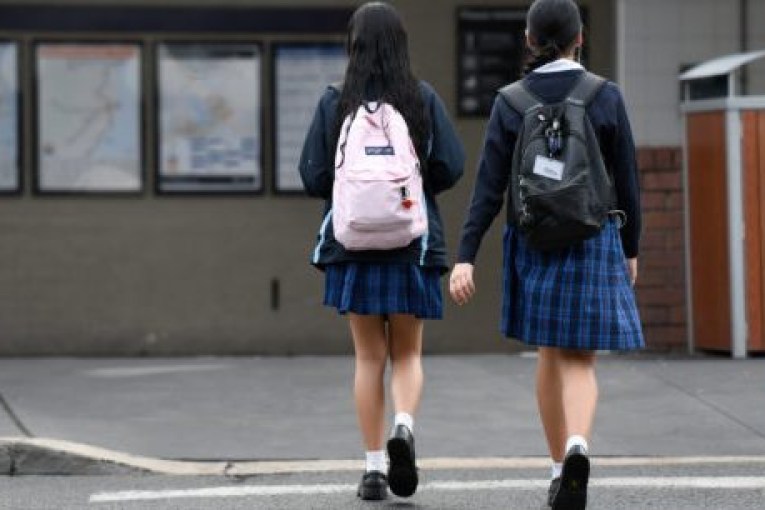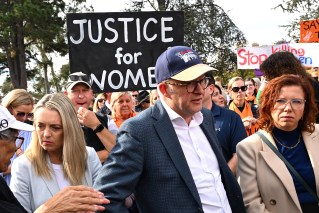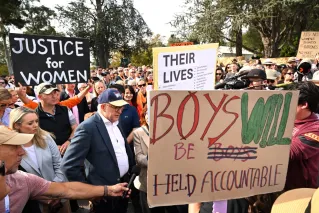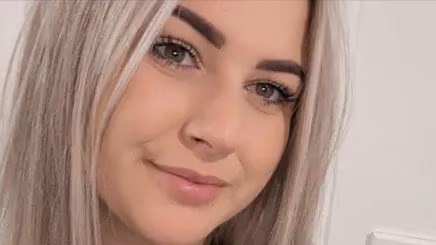The mothers and fathers, husbands and wives who happen to be our politicians
As the tone and passion of our public discourse escalates to explosive levels, have we lost track of the fact that politics is, by definition, about people, asks Madonna King

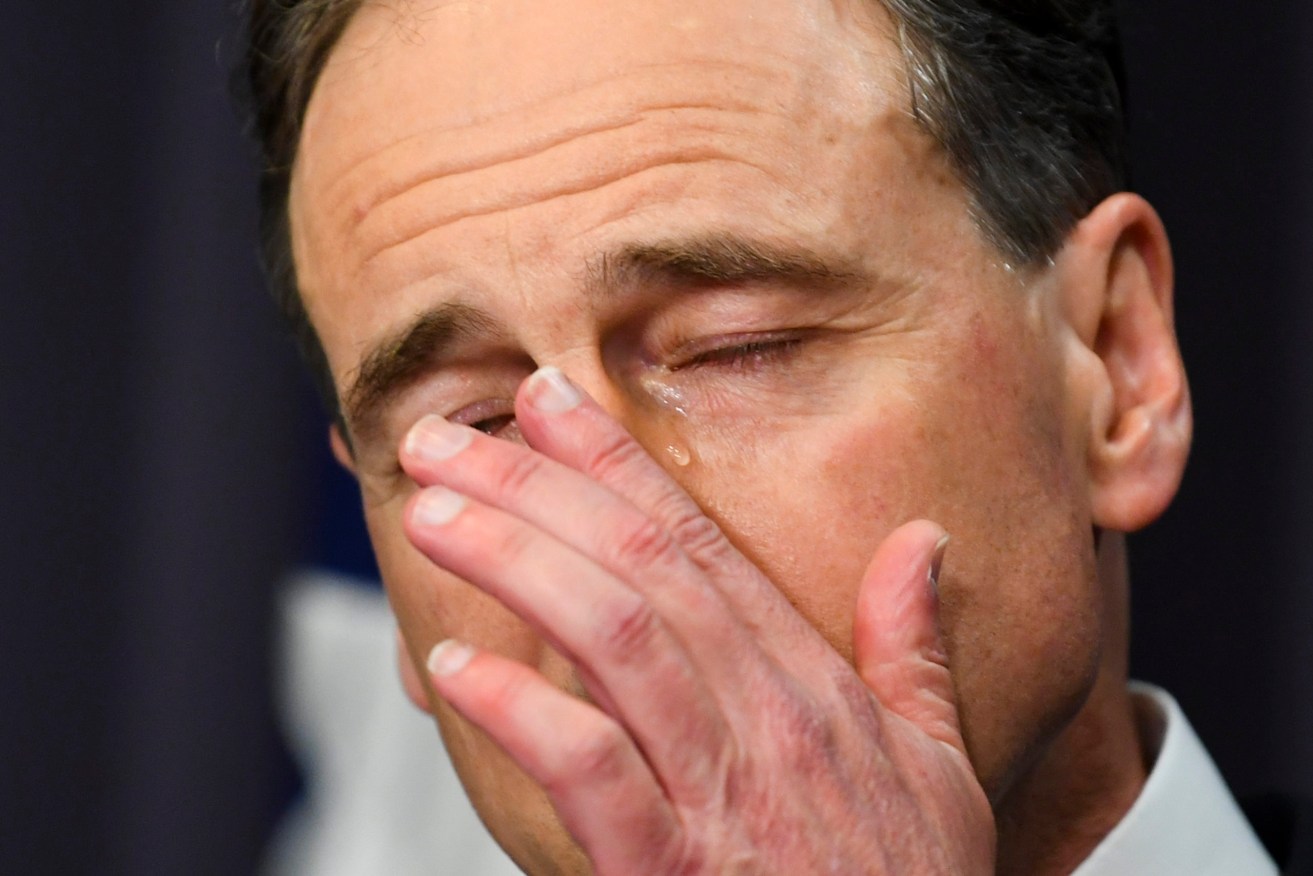
Australian Health Minister Greg Hunt tears up as he speaks about death threats to his family. (AAP Image/Lukas Coch)
A few years ago a senior minister was grabbing dinner at a local McDonald’s, with his children.
His car was set upon, with protestors screaming abuse, while his three children cowered in the back seat.
He drove straight home and spent more than $2000 on CCTV cameras, which could cover every entrance and exit to his home.
And he admits it changed, forever, his passion for unplanned voter meet-and-greets.
More recently, threats were made to a female politician about her children. She remains on guard and mystified how – despite keeping her work and family lives entirely separate – the perpetrators knew so much about her offspring.
In other cases politicians, as well as those charged with implementing their policies, have founded themselves making concerned phone calls to the Australian Federal Police.
Sometimes it doesn’t require law enforcement or protection, but is equally unsettling.
One senior Queensland politician found a note, directed at him, in their child’s lunch box.
Another had to intervene when a teacher started singling out an eight-year-old over government comments about homework. The child was humiliated in front of their class and refused, at first, to tell their parents why they were so distraught.
The tearful admission by federal health minister Greg Hunt yesterday, that his own children have been subject to death threats, is a timely reminder of just how derisive and disdainful public debate has become.
And the more emotional the public issue is – from the republic to refugee policy, tax changes and vaccine mandates – the more vicious the exchanges.
Greg Hunt’s comments were part of a condemnation of anti-vaccine protesters pursuing the NT chief minister Michael Gunner whose family was forced to flee their home after his personal address was made public, and threats were made to attack him.
The vaccine debate has prompted more death threats, perhaps, than any other issue in recent history.
Over time our politicians have become less accessible, and the mall walk-through, where politicians like Bob Hawke were routinely mobbed, have disappeared from election campaigns.
Social media plays a much bigger part – in both politicians disseminating their message, but also in the feedback of voters which is routinely abusive, offensive, uncivil and potentially criminal.
For some women, this is possibly the biggest hurdle to making a decision to run for politics: the nastiness, opening their family to abuse, and threats against their children.
Politicians – like those who comment on them – are fair game in terms of the decisions they make.
But it is clear the growing anxiety in the community, partly but not entirely fuelled but COVID19, has amplified the tendency to play the person, not the ball.
How we deal with mental health will be the biggest – and most costly – challenge in the the COVID19 tail.
It’s a challenge for the politicians – and it helps when they show they are not above it, but are as vulnerable as their constituents.
Three million Australian are living with anxiety or depression. One in eight Australians will consider suicide at some point in their lives.
Yet despite the enormous amount of research and public funds being poured into mental health, we are still reluctant to talk about it. Particularly in the political sphere.
Politicians Andrew Robb, AO, John Brogden, AM, Geoff Gallop, AC, and Jim Pearce have been among a handful of politicians who have explained the tortuous pain behind their successful political careers.
Indeed former Cabinet and Trade Minister Andrew Robb revealed a colleague – a former medical doctor – told him he had written antidepressant scripts for about 20 percent of this colleagues – on both sides of Parliament.
That’s why we owe Denise Sims, the deputy mayor of Moreton Bay Regional Council, such gratitude in publicly addressing why she has handed in her resignation.
“To be vulnerably honest with you right now, I am currently receiving professional help. Having started this journey, I would encourage anyone struggling personally to do the same,’’ she said.
Cr Sims’ story is her own. We don’t need to know the details. But her vulnerability and authenticity is an antidote to the screaming we hear elsewhere.
In the argy bargy of politics, it’s easy to forget that politicians are also mothers and fathers and husbands and wives and significant others, sons and daughters and aunts and uncles.
Greg Hunt reminded us of that yesterday.
